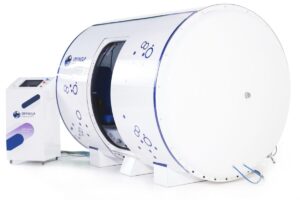A nurse practitioner is a qualified healthcare provider who offers patients immediate treatment. Nurse practitioners specialize in one area of medicine, such as pediatrics, obstetrics or geriatrics.
They can operate alone and deliver therapy in their own settings, but some also collaborate with or seek advice from doctors and other medical specialists. Depending on the state laws, a nurse practitioner may only offer a certain amount of treatment unsupervised.
A nurse practitioner’s employment may require them to operate in a hectic setting, so being able to think quickly and maintain their composure is critical.
How does a nurse practitioner spend their day in a primary healthcare setting?

Nurse practitioners spend each day caring for patients, which includes treating patients’ ailments and attempting to prevent diseases. Depending on their place of employment, their hours may change. For instance, a nurse practitioner employed by a hospital could work weekend or midnight hours, and their weekly schedule may vary.
Many nurse practitioners begin their days by getting organized and doing administrative work. This may also involve reviewing patient charts and ensuring that everything is in working order.
The remainder of their day is often spent visiting patients. A nurse practitioner may visit hundreds of patients in just a single day in a busy setting. Nurse practitioners plan their agenda for the following day and typically place lab test orders at the conclusion of the day.
Role of nurse practitioner in primary care
Nurse practitioners are in high demand and are highly skilled professionals. The fact that nurse practitioners are employed by numerous healthcare facilities and private medical practices is not surprising. They can meet many fundamental healthcare requirements with good care standards, freeing up doctors to concentrate on more challenging situations. Here are some of the roles that primary care nurse practitioners are responsible for fulfilling on a daily basis:
Evaluating a patient’s health

During patient visits, nurse practitioners evaluate patients’ current health conditions. This involves speaking with the patients and going over any potential problems they may have. Thermostats and BP monitors are just a couple of the medical supplies and instruments that nurse practitioners utilize to assist them in gathering data about their patients.
Determining a diagnosis
A nurse practitioner analyses the data that they have gathered about a patient to arrive at a diagnosis. Nurse practitioners use their knowledge, training and experience as a guide to uncover the most likely reason for a patient’s symptoms. In order to make a precise diagnosis, a nurse practitioner may also consult with other professionals, such as physicians or other healthcare providers.
Organizing treatment strategies

According to their diagnosis and evaluation, nurse practitioners select the best plan of treatment for each patient. This might involve recommending lifestyle changes, issuing medicines or referring the individual to a licensed medical expert. Nurse practitioners regularly work with patients, their relatives and other healthcare experts to ensure they receive the proper and appropriate care they need.
Educating patients
A key component of nursing is patient education, which ensures that patients receive comprehensive directions on how to take care of themselves once they have been released from treatment or during the rehabilitation period.
Nurses can offer this professional care by teaching patients how to treat their health issues through therapeutic techniques, good behaviors and careful monitoring.
Patient education plays a crucial part in the wellbeing of patients as it enables practitioners to assist patients in receiving ongoing care even after leaving the hospital.
Through this instruction, patients are encouraged to take responsibility for their personal wellbeing, reducing the possibility that they may need to return to a hospital or other healthcare facility.
In addition, patient awareness can assist patients in developing excellent long-term results by reinforcing healthy habits and hastening the healing process.
Carrying out administrative tasks
Nurse practitioners must often complete administrative tasks as well. They may be required to file patient data, arrange records, make staff schedules or purchase new supplies for their hospital. In their capacity as a nursing leader, nurse practitioners may delegate administrative responsibilities or organize training.
How to pursue a career as a nurse practitioner?
Joining the ranks of nurse practitioners requires the following steps:
Education
Completing a nursing education program is the first step towards becoming a nurse practitioner. It is necessary for nurse practitioners to earn a master’s degree from a recognized educational institution.
However, students usually need to earn a bachelor’s degree in nursing first before pursuing their field of specialization. Students in an undergraduate nursing program take courses in pharmacology, community health, pediatric nursing, anatomy and physiology.
Additionally, they must meet practical experience requirements, where they apply what they learned in the educational setting to real-life circumstances while being closely supervised.
A master’s or doctorate degree in nursing can help students become eligible for a career as a nurse practitioner after earning their RN license. In general, nurse practitioners decide on a particular branch of medicine to focus on, such as family medicine, emergency care or acute care.
Students may enroll in courses in pathophysiology, advanced pharmacology and healthcare management. Registering in an NP program through a reputable educational institution such as Rockhurst University Online will provide you with the opportunity to advance your nursing career.
Their post master’s family nurse practitioner degree program involves 100% online coursework and prepares you to care for patients of all ages.
Training
The majority of the education required for the position of a nurse practitioner is obtained through practical training or professional experience as an RN. A master’s or doctorate program typically lasts two to three years.
In addition to taking classes and attending seminars, students must also complete a professional clinical residency in order to gain practical experience while being supervised by a qualified expert.
Obtain a license
All states demand that nurses acquire a license before they may begin employment. By state, there are different criteria. In some states, this involves passing an exam, while in others it means taking certain classes. Before registering as a nurse, those who are interested in becoming nurse practitioners can learn more about the regulations in their state.
Conclusion
Being a nurse practitioner is a rewarding career and is a key part of the day-to-day running of healthcare. From evaluating a patient, determining a diagnosis and then implementing a treatment plan, the role of a nurse practitioner requires composure, knowledge and empathy.
As they are often the first person a patient will see in primary care, nurse practitioners are the frontline staff to ensure great quality healthcare and patient care.






